32 Things Millennials & Gen Z Do That Break Their Parents’ Hearts

Every generation does things that drive their parents up the wall. But Millennials and Gen Z? Oh, we’ve taken it to a whole new level. While we’re out here chasing dreams, setting boundaries, and prioritizing self-care, our parents are clutching their pearls, wondering where they went wrong.
From texting instead of calling to side-eyeing their life advice (sorry, but “just walk in and ask for a job” doesn’t work anymore, Dad), some of our everyday habits are low-key breaking their hearts. And the wildest part? We don’t even realize we’re doing it.
So, grab your emotionally supportive water bottle and get ready for 32 things we do that have our parents questioning everything. Some will make you laugh, some might make you feel a tiny bit guilty—but hey, at least we can acknowledge it, right?
1. Constant Phone Use
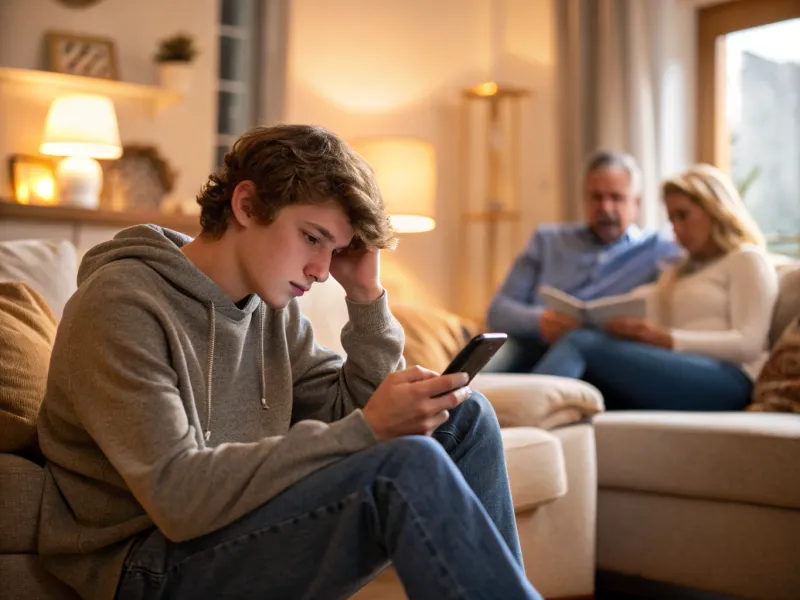
Life and Lessons
You know that thing you do where you’re glued to your phone? Yeah, that one. It’s like your hand is permanently attached to the device, right? Well, here’s the deal: our parents just don’t get it. They come from a time when face-to-face conversations didn’t have to compete with a screen.
They might remember when talking meant eye contact and no notifications. And let’s not even get started on the multi-tasking—texting while nodding at a family dinner isn’t fooling anyone. Sure, it’s how we stay connected, but to them, it feels like a barrier.
So, next time you’re at the dinner table, try setting the phone aside. Who knows, you might learn something new, or at least get through a meal without the ‘put that phone away’ look. Trust me, it’s worth a shot, even if just for a little peace.
2. Rejecting Traditional Careers
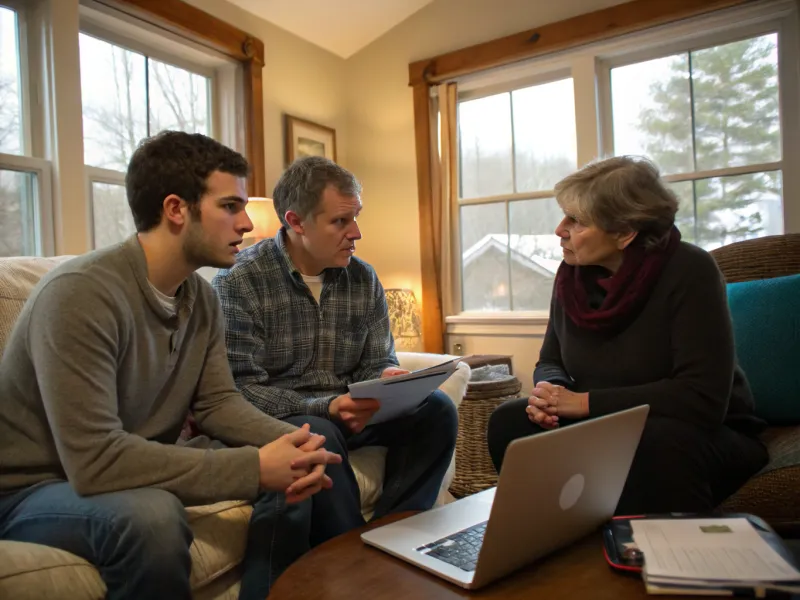
Life and Lessons
Let’s talk careers, shall we? Remember when becoming a doctor, lawyer, or engineer was the ultimate goal? Our parents sure do. But here we are, chasing dreams of being influencers, freelancers, and startup gurus. It’s a thrilling world for us but a total conundrum for them.
They grew up with the notion that security was in the 9-to-5. So, when we reject that for the gig economy, it feels like we’re tossing stability out the window. They might not say it, but the concern is real.
Breaking the mold is exhilarating, but it comes with its own set of challenges. Maybe a little chat about why we’re passionate about our paths could bridge the gap. Let them in on the excitement and the hustle. You never know; they might even come around and become your biggest cheerleaders.
3. Eschewing Home Ownership

Life and Lessons
Owning a home was once the pinnacle of adulthood, a dream our parents held dear. But for us? Renting is often more practical. We value mobility, city living, and, let’s be real, avoiding a 30-year mortgage.
Our folks might not understand why we’d opt for a lease over a deed, but the freedom to pick up and move is priceless to many of us. Yet, they worry we’re missing out on ‘investing in our future.’
Explaining the benefits of renting, like financial flexibility and lifestyle freedom, might just ease their minds. It’s not that we’re against owning a home; it’s just that our timelines and priorities look different. Plus, there’s something to be said for not having to mow the lawn every weekend. It’s a win-win, even if they don’t see it right away.
4. Prioritizing Experiences Over Possessions

Life and Lessons
We live for the ‘Gram-worthy moments, don’t we? Travel, concerts, foodie experiences—these are our treasures. Meanwhile, our parents might scratch their heads, wondering why we don’t save up for a new car or furniture set.
To them, tangible possessions equate to success. But for us, memories and experiences are priceless. It’s not that we don’t value stability; it’s just measured differently.
Maybe sharing how these experiences enrich our lives could help them understand. It’s about growth, connection, and those unforgettable stories. And honestly, who wouldn’t prefer a sunset in Bali over just another couch? It’s all about perspective, and maybe, just maybe, they’ll start to see the value in it too.
5. Advocating for Mental Health
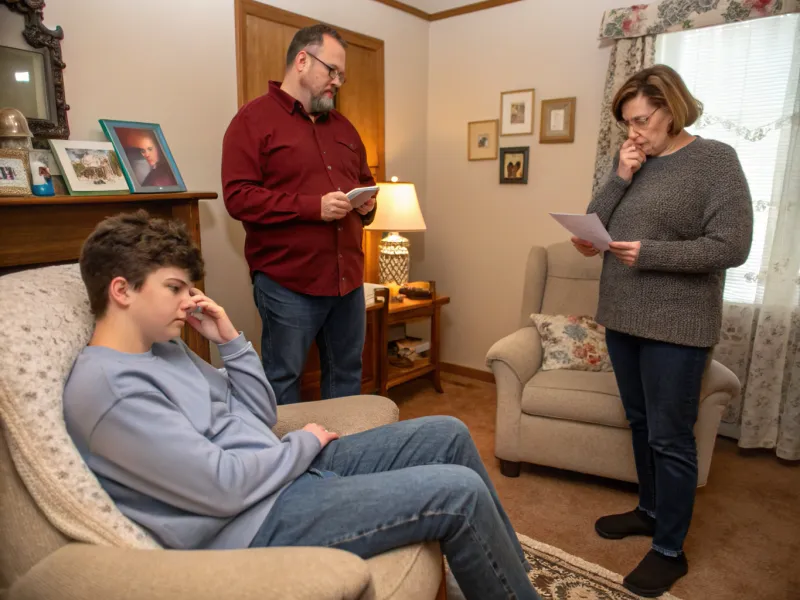
Life and Lessons
Ah, mental health—a topic our generation embraces wholeheartedly. Therapy, meditation, self-care—we’re all about it. But for our parents, it might seem a bit foreign or even unnecessary. They grew up in a time where ‘toughing it out’ was the norm.
They might wonder why we’re so open about our feelings and why we seek help for things they believe should be private. But here’s the thing: we understand the importance of mental wellness, and we’re not afraid to pursue it.
Talking about mental health openly can bridge the generational gap. It’s not about weakness; it’s about strength and awareness. Maybe introducing them to the benefits we’ve found can help them understand this shift. After all, a healthy mind is just as crucial as a healthy body, and that’s something everyone can agree on.
6. Championing Social Causes

Life and Lessons
Let’s face it, we’re a generation that’s not afraid to speak up. Whether it’s climate change, social justice, or equality, we’re front and center, rallying for change. Our parents? They’re sometimes taken aback by our vigor and, dare I say, loudness.
They might reminisce about quieter times, questioning if all this advocacy really makes a difference. But to us, it’s about standing up for what’s right and creating a better future.
Explaining the impact our actions can have might ease their skepticism. It’s not just noise; it’s progress. And whether they join in or not, showing them the importance of these causes could bring a new level of understanding. Together, we might just change the world, one rally at a time.
7. Questioning Marriage
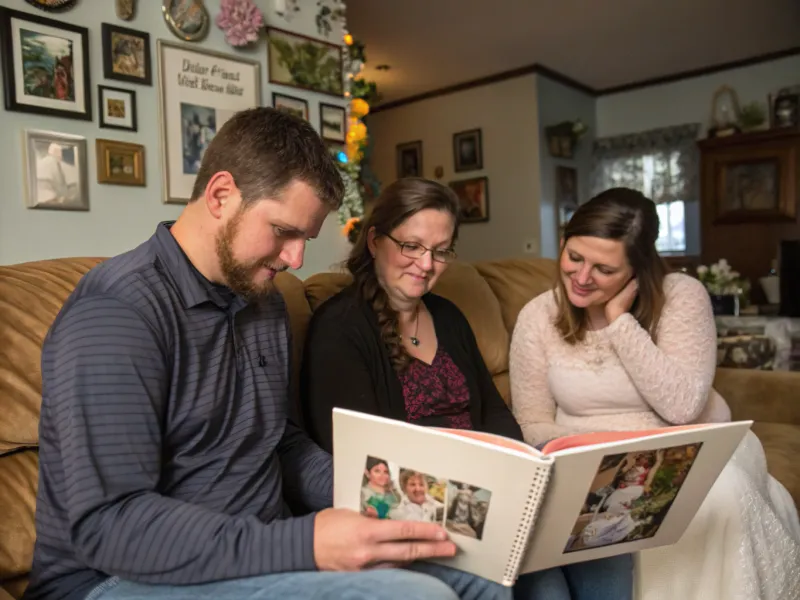
Life and Lessons
Ah, marriage—the ultimate commitment, or so it once was. Our parents might see it as the natural next step in life’s journey, but for many of us, it’s not so clear-cut. We’re questioning its necessity, its timing, and its relevance in today’s world.
They tied the knot in a different era, where marriage was the cornerstone of adulthood. We, however, weigh options like cohabitation or staying single longer, seeking fulfilling relationships without the traditional labels.
It’s not about rejecting love; it’s about redefining it. Sharing our perspectives on commitment might just help them see that love isn’t bound by tradition. And who knows? They might start to appreciate the new forms love can take, even if it doesn’t come with a white dress and vows.
8. Choosing Not to Have Kids

Life and Lessons
Kids or no kids? That’s a big question, and for some of us, the answer leans towards no. Our parents might struggle with this one, dreaming of grandkids and family gatherings. But the reality is, not everyone wants the pitter-patter of little feet.
It’s not about rejecting family; it’s about personal choice. We value our freedom, careers, and lifestyle—things that might clash with traditional family life. They might see it as a loss, but for us, it’s a calculated decision.
Explaining our reasons can ease the sting. It’s about living authentically and choosing what fulfills us. And hey, there’s always the option of being the coolest aunt or uncle around. It’s a different kind of family tree, but it’s ours to shape.
9. Relying on Technology

Life and Lessons
Ah, technology—our best friend and sometimes our parents’ worst enemy. We’ve got gadgets for everything, from smart speakers to automated vacuums. Meanwhile, our parents might be wrestling with a TV remote.
It’s not that they’re tech-averse; it’s just that the pace of change can be overwhelming. We embrace innovation, while they might long for simpler times.
Showing them the convenience technology brings might just win them over. It’s about enhancing life, not complicating it. And who knows, they might just enjoy asking a smart speaker for the weather instead of checking the paper. It’s a digital age, and we’re all learning to navigate it, one app at a time.
10. Expressing Individuality

Life and Lessons
Individuality is our mantra, right? From vibrant hair colors to tattoos, we wear our personalities on our sleeves—literally. Our parents, though, might not get it. They grew up in a time when fitting in was more common than standing out.
To them, these expressions might seem rebellious, but to us, it’s about self-identity and creativity. It’s not about defiance; it’s about authenticity.
Explaining the meaning behind our choices can be enlightening for them. It’s art, it’s statement, it’s us. And who knows, they might even find an appreciation for the colors and stories we carry, one tattoo at a time. It’s a beautiful blend of tradition and modernity, with room for everyone at the table.
11. Delaying Adulthood Milestones

Life and Lessons
Remember when adulthood meant a house, a spouse, and a career by 25? Our parents sure do. But for us, things are a bit different. We’re delaying those milestones, choosing to enjoy life at our own pace.
They might see it as procrastination, but to us, it’s about savoring the journey. We value experiences over timelines, and that can be hard for them to grasp.
Maybe sharing our perspectives on what adulthood means today can bridge the gap. It’s about flexibility, not stagnation. And who knows, they might just come to appreciate the beauty of a life lived on our own terms. Because in the end, it’s not a race; it’s an adventure.
12. Reinventing Education
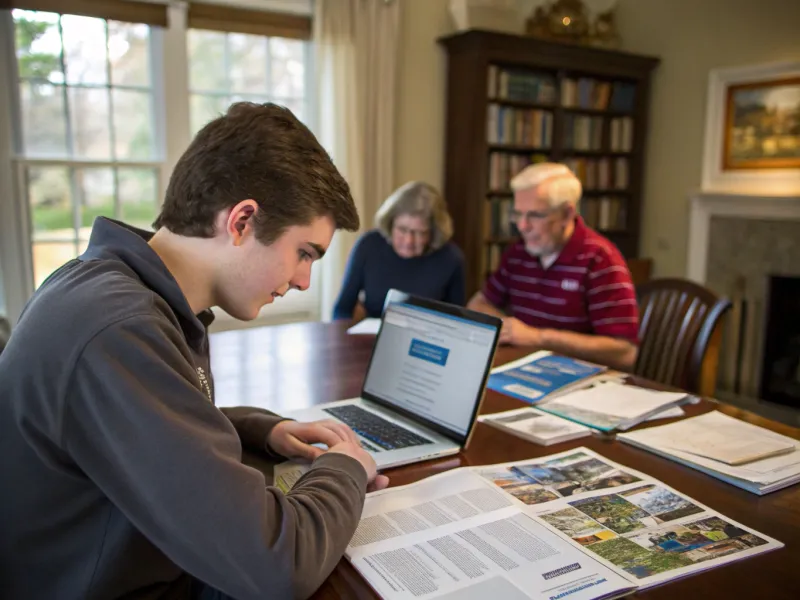
Life and Lessons
Education is evolving, and we’re at the forefront. Online courses, bootcamps, and alternative certifications are becoming the norm, leaving traditional education in the dust. Our parents, who valued degrees from brick-and-mortar schools, are left scratching their heads.
To them, college was the golden ticket. But we see value in learning that’s flexible and tailored to our needs. It’s not that we don’t respect traditional education; it’s just that we’re exploring new paths.
Discussing the benefits of these alternatives can open their eyes. It’s about adapting to the ever-changing world and finding what truly works for us. And who knows? They might just see the wisdom in diversifying education, one online course at a time.
13. Embracing Non-Traditional Lifestyles

Life and Lessons
Minimalism, tiny homes, eco-friendly living—we’re redefining what it means to live well. Our parents, who might equate success with bigger and better, find this shift a bit baffling.
For us, it’s not about lack; it’s about choice. We’re focused on quality over quantity, sustainability over excess. It’s a lifestyle that brings freedom and intentionality, values they might not see on the surface.
Sharing our reasons and the satisfaction we find in simplicity might just help them understand. It’s not about rejecting what they’ve built, but about creating something new and meaningful. And maybe, just maybe, they’ll see the appeal of living with less, but gaining so much more.
14. Being Passionate Foodies

Life and Lessons
Food is life, and we take it seriously. From Instagram-worthy brunch spots to exotic cuisines, we’re all about the culinary adventure. Our parents, though, might wonder why we’re not content with classic home-cooked meals.
To them, food is sustenance, something familiar and comforting. But for us, it’s an expression of culture, a way to explore the world without leaving the table.
Explaining our love for diverse and exciting flavors might just open their palates. It’s about discovery, connection, and yes, sometimes a little indulgence. And who knows, they might just join us on a foodie expedition, one delicious bite at a time.
15. Openly Questioning Authority
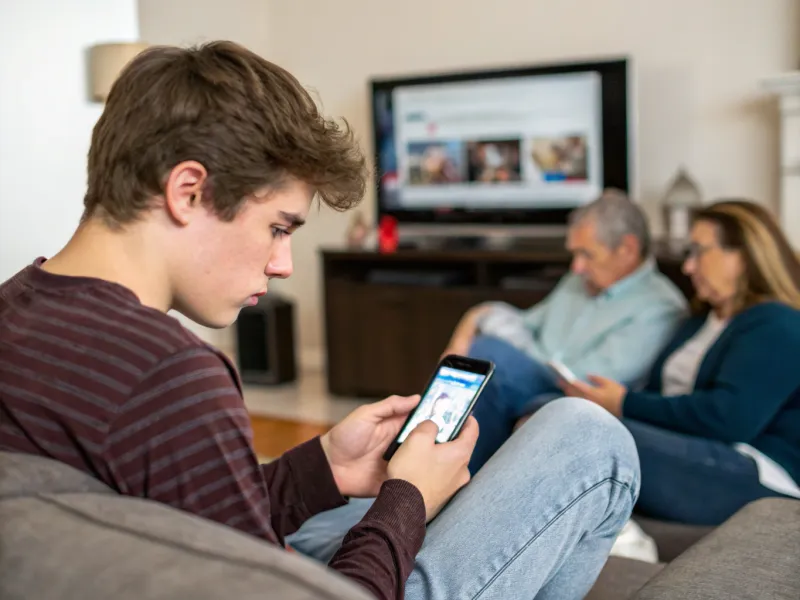
Life and Lessons
We’re not ones to take things at face value, are we? Questioning authority is practically in our DNA. Whether it’s politics, corporate policies, or social norms, we’re here to challenge the status quo.
Our parents might see this as disruptive or even disrespectful. They grew up in a time where authority was often unquestioned, a source of structure and order.
But for us, it’s about accountability and progress. Explaining that our questions stem from a desire for truth and fairness might just help them see our perspective. It’s not about anarchy; it’s about evolution. And who knows, they might just find a new appreciation for the questions we ask, and the change that follows.
16. Embracing Fluid Identities
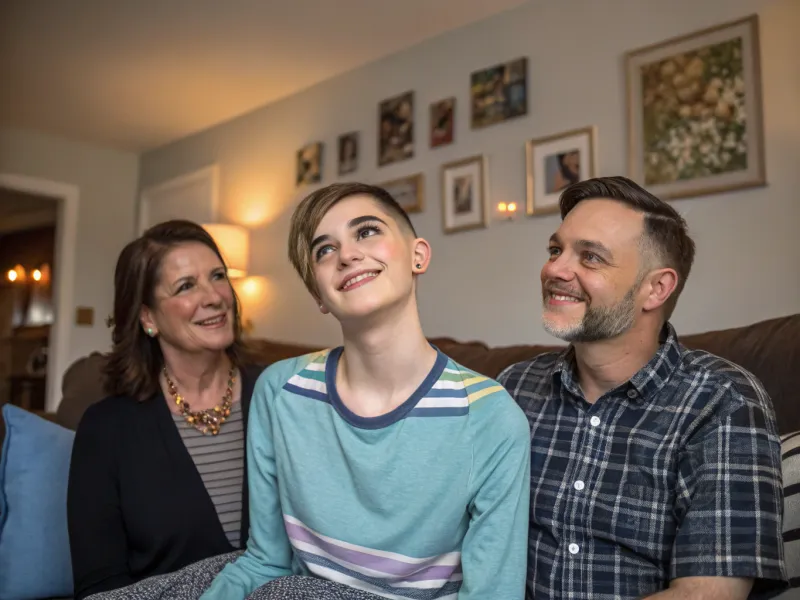
Life and Lessons
Identity today is as fluid as ever. We embrace change, exploration, and self-discovery, often leaving our parents a bit perplexed. They grew up with more rigid definitions of gender and identity.
To them, these concepts might seem confusing or even unsettling. But for us, it’s about authenticity and self-expression, breaking away from binaries and embracing the spectrum.
Explaining our journey and what it means to us can help bridge the gap. It’s about freedom and acceptance, values that resonate on a universal level. And who knows, they might just join us in celebrating individuality, in all its beautiful forms.
17. Living Unconventionally
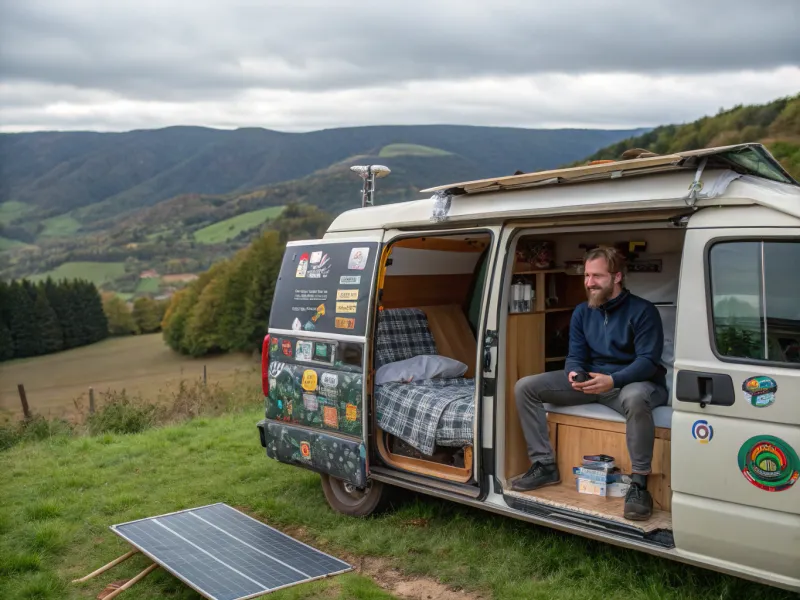
Life and Lessons
Van life, digital nomads, unconventional living—oh my! We’re out here redefining what it means to have a home, leaving our parents in a whirlwind of questions.
They might see stability in four walls and a picket fence, but we find it in the open road and endless possibilities. It’s not about rejecting their values; it’s about creating our own.
Sharing the freedom and adventure in our lifestyle might help them understand. It’s about living fully, not recklessly. And who knows, they might just hop in for a road trip, discovering new horizons, one mile at a time.
18. Engaging in Side Hustles

Life and Lessons
Side hustles are the name of the game, aren’t they? We’re all about that extra income and passion projects, but our parents might view it as overworking or lacking focus.
To them, one steady job was the goal. But for us, multiple streams of income mean opportunity and security. It’s about diversifying and following our passions.
Explaining the benefits and fulfillment from side hustles might ease their concerns. It’s about ambition and creativity, not burnout. And who knows, they might just see the value in pursuing dreams alongside careers, crafting a life that’s both stable and exciting.
19. Celebrating Diversity
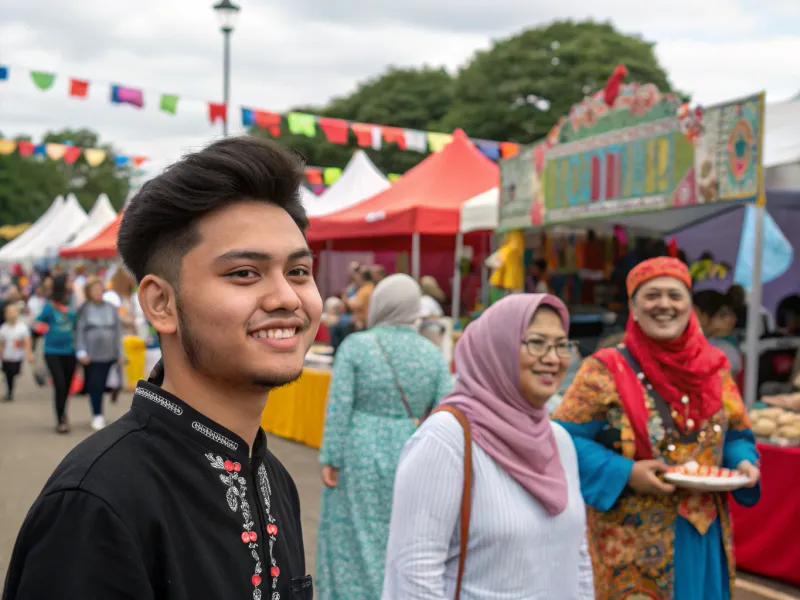
Life and Lessons
Diversity is our jam. We celebrate it, live it, and breathe it. From multicultural festivals to diverse friend groups, our lives are rich with variety. Our parents, though, might be more accustomed to homogeneity.
To them, diversity might be a concept, but to us, it’s a way of life. It’s not about erasing traditions; it’s about enriching them with new influences.
Explaining the joy we find in diversity might help them appreciate this colorful tapestry. It’s about unity, growth, and understanding. And who knows, they might just join in the celebration, finding pride in both where they’ve been and where we’re all going.
20. Redefining Success

Life and Lessons
Success—it’s a word with evolving definitions. For our parents, it might be a corner office and a pension plan. But for us, it’s flexibility, creativity, and fulfillment.
They might see our choices as risky, but to us, they’re opportunities to define success on our own terms. It’s not about rejecting their values, but expanding upon them.
Sharing our vision of success might help them see the broader picture. It’s about finding happiness and purpose, not just a paycheck. And who knows, they might just find a new respect for the journey we’re on, one that’s uniquely ours.
21. Sustainability Practices

Life and Lessons
Sustainability is more than a buzzword; it’s a lifestyle. We’re all about eco-friendly choices and reducing our footprint, while our parents might still reach for those plastic bags.
To them, convenience ruled, but we’re focused on the planet’s future. It’s not about shaming their choices, but about making informed ones ourselves.
Explaining the impact of sustainable practices might just inspire them. It’s about preserving what we have for future generations. And who knows, they might just join us in making greener choices, one reusable bag at a time.
22. Loving Pets as Family

Life and Lessons
Pets are family, aren’t they? We spoil them, love them, and treat them like our own. Our parents might see them as just animals, but to us, they’re companions and confidants.
They might think we’re overboard with pet pampering, but it’s about the bond we share. It’s not about replacing human connections; it’s about enriching them.
Explaining the joy and comfort pets bring might just warm their hearts. It’s about love in all its forms. And who knows, they might just adopt a furry friend of their own, discovering the delightful chaos that comes with it.
23. Practicing Mindfulness
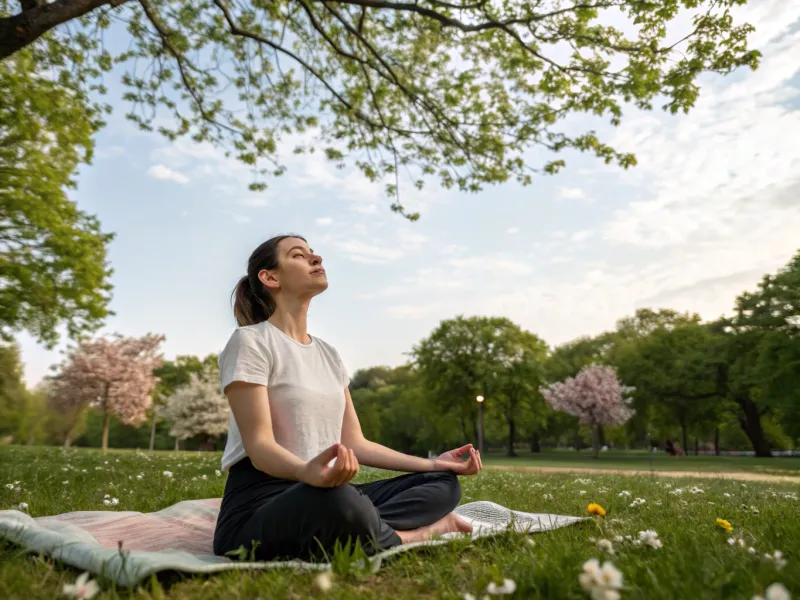
Life and Lessons
Mindfulness is our mantra, a way to find peace amid the chaos. We meditate, practice yoga, and seek balance, while our parents might be caught up in the hustle.
To them, slowing down might seem unproductive, but for us, it’s essential. It’s about being present and finding clarity.
Explaining the benefits of mindfulness could open their eyes to its importance. It’s about wellness, not laziness. And who knows, they might just pause and find their own moment of zen, appreciating the tranquility it brings.
24. Tackling Student Debt

Life and Lessons
Student debt—it’s the monster under our beds, isn’t it? We’re tackling it head-on, while our parents might recall a time when tuition was manageable.
To them, debt was something to avoid, but for us, it’s a reality we face with determination. It’s about planning and perseverance.
Sharing our strategies to overcome this burden might just earn their respect. It’s about resilience and resourcefulness. And who knows, they might just become our biggest supporters, cheering us on as we conquer this financial beast.
25. Navigating Digital Dating

Life and Lessons
Swipe left, swipe right—welcome to modern dating. We’re navigating apps and profiles, while our parents might reminisce about simpler times.
To them, dating was about meeting people organically, face-to-face. But for us, technology opens doors to new connections.
Explaining the dynamics of digital dating might help them understand. It’s about broadening horizons, not erasing traditions. And who knows, they might just appreciate the courage it takes to put yourself out there, one swipe at a time.
26. Valuing Flexibility in Work

Life and Lessons
Work has changed, and flexibility is key. We value the freedom to work from anywhere, while our parents might recall strict office hours.
To them, structure meant stability. But for us, it’s about balance and productivity.
Explaining the benefits of flexible work might just change their perspective. It’s about creating a work-life blend that works for us. And who knows, they might just see the value in this new approach, appreciating the harmony it brings.
27. Exploring Alternative Spiritualities
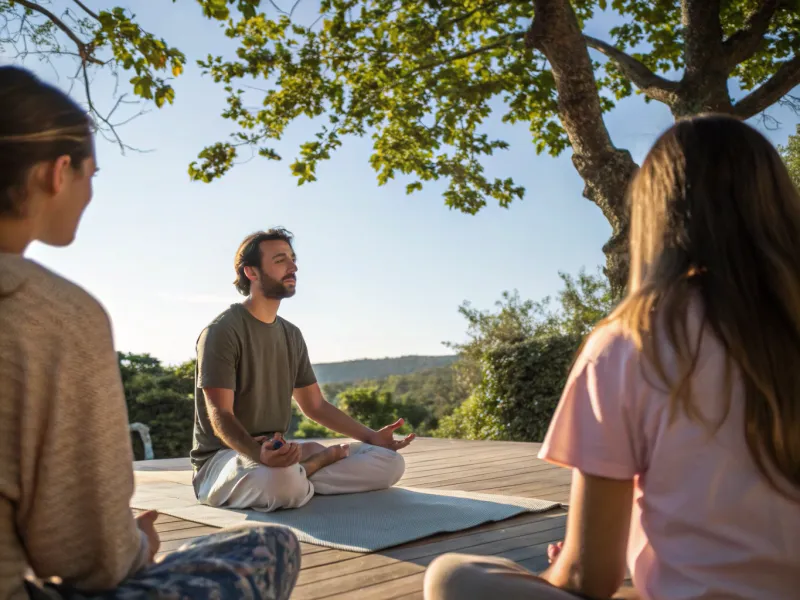
Life and Lessons
Spirituality is personal, and we’re exploring it in our own ways. From meditation to nature retreats, our paths might differ from our parents’ traditional views.
To them, spirituality was often tied to organized religion. But for us, it’s about personal growth and connection.
Sharing our spiritual journeys might open their minds. It’s about finding peace and purpose. And who knows, they might just join us in exploring new spiritual horizons, discovering the serenity it brings.
28. Navigating Job Hopping

Life and Lessons
Job hopping is the norm, isn’t it? We seek opportunities and growth, while our parents might value loyalty and long-term employment.
To them, a stable job was the goal. But for us, it’s about finding the right fit and continuous learning.
Explaining the benefits of changing jobs might help them see the bigger picture. It’s about career development, not instability. And who knows, they might just appreciate the courage it takes to pursue what truly aligns with our goals.
29. Prioritizing Self-Expression through Tattoos
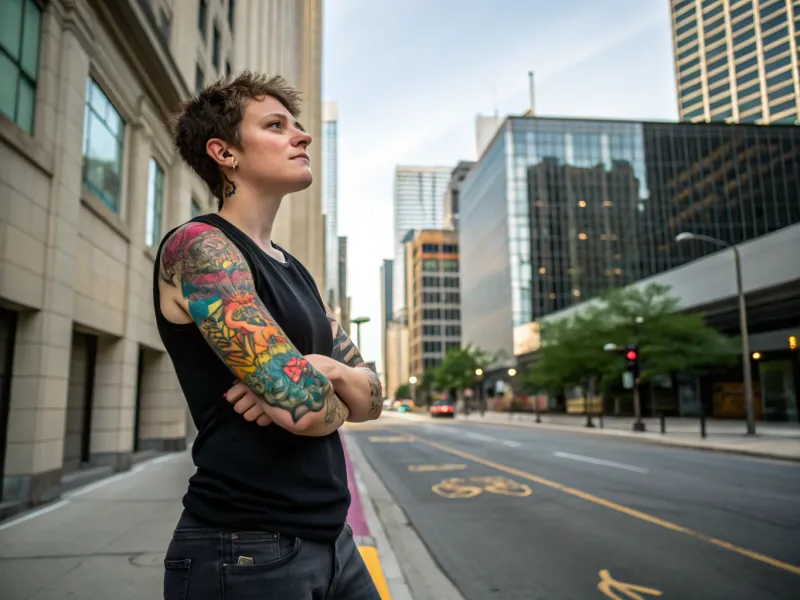
Life and Lessons
For Millennials and Gen Z, tattoos have become a powerful form of self-expression, a canvas for their beliefs, memories, and identities. This trend, however, can be perplexing for parents who grew up in a time when tattoos were often stigmatized.
Parents may worry about the permanence of tattoos and their implications on professional opportunities. Yet, for these younger generations, tattoos represent a commitment to authenticity and individuality.
The vibrant colors and intricate designs tell stories and initiate conversations, reflecting a shift towards valuing personal narrative over conventional appearances.
30. Digital Nomad Lifestyle
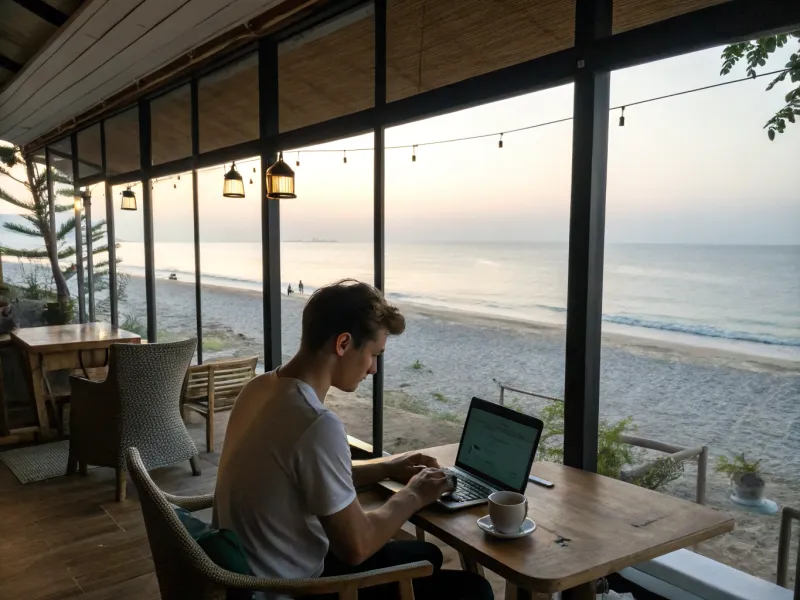
Life and Lessons
Embracing the digital nomad lifestyle, many Millennials and Gen Z members prefer careers that allow them to work remotely while traveling the world. This unconventional work style can bewilder parents accustomed to traditional 9-to-5 jobs.
For these adventurers, the world is their office, and they thrive on the freedom to explore diverse cultures while maintaining professional responsibilities. Parents may struggle to understand how stability can coexist with such a transient lifestyle.
Despite concerns about job security, digital nomads are often resourceful and adaptable, showcasing a new form of work-life integration that values experiences over material possessions.
31. Influencer Career Pursuits

Life and Lessons
The rise of social media influencers has opened up unconventional career paths for Millennials and Gen Z. Parents may find it hard to grasp how their children earn a living by sharing their lives online.
This career choice emphasizes creativity, personal branding, and digital engagement, often differing from traditional job expectations. Influencers use platforms to connect with audiences on topics ranging from fashion to social justice.
While parents might worry about the instability of such careers, many influencers build sustainable businesses with diverse revenue streams, reflecting a shift towards entrepreneurial independence.
32. Vegan and Plant-Based Lifestyles
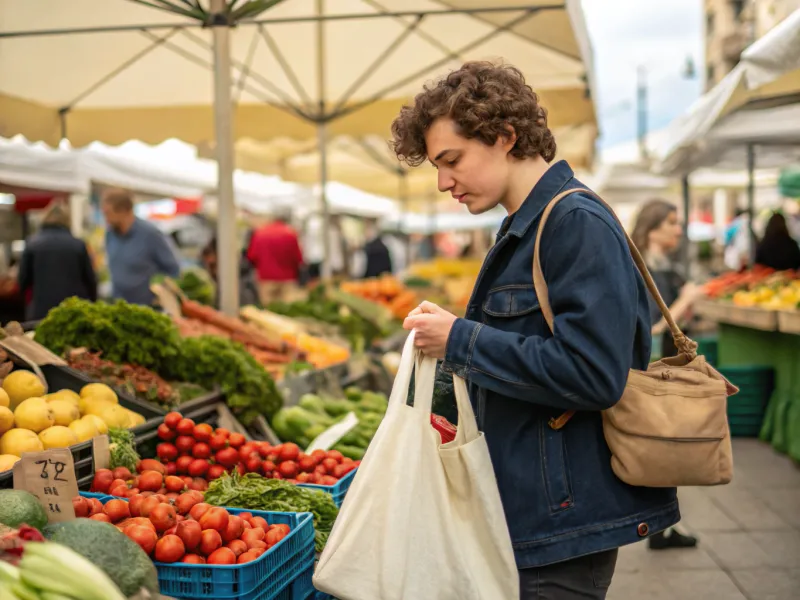
Life and Lessons
Adopting vegan or plant-based lifestyles, many Millennials and Gen Z individuals prioritize health, environmental sustainability, and ethical considerations. This dietary shift can be challenging for parents used to traditional meat-centric meals.
Cooking and eating habits evolve as younger generations explore new ingredients and flavors, often leading to a culinary culture clash at family gatherings.
Despite initial resistance, these diets are increasingly recognized for their health benefits and reduced environmental impact, highlighting a commitment to conscious living that resonates with global ecological concerns.
